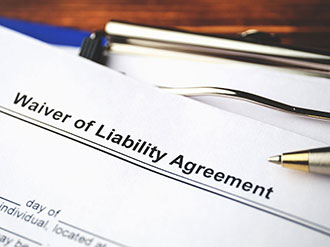|
|
Last Modified on Mar 05, 2025
Before moving forward with a medical procedure, why does your healthcare provider ask for a signed waiver? It doesn’t matter if you are having a minor treatment or going into major surgery; you need to get information about the potential risks.
Informed consent means that you understand the potential benefits of the procedure, as well as possible complications that might occur. While the hope is that everything will turn out as planned, there’s always a risk that complications might arise.
The best thing you can do to protect your interests is to understand the paperwork before signing on the bottom line. Medical waivers are common, so you need to know how they might affect your interests in case of an unexpected snag in the treatment or recovery.
What is a Medical Waiver?
Before the medical procedure, it’s common for office staff to hand you an informed consent form. Often, doctors won’t move forward with the treatment without a signature on the waiver.
This release form confirms that you have information about the inherent risks of the treatment. A doctor or nurse will likely have a conversation with you about these possible risks. Then, you sign a form acknowledging your permission to move forward despite the potential risks.
The purpose of this waiver is to limit a patient’s ability to hold the doctor, nurses, or hospital liable in case of complications. If something goes wrong, then patients might want to seek compensation for damages injuries incurred as a result of the procedure.
Medical Waiver: What You Need to Know
Medical providers use different names for this type of form:
- Consent form
- Liability waiver
- Waiver of liability
- Medical liability release form
- Release of liability
- Medical release and liability waiver
Regardless of the language on the form, the purpose is always the same: informing patients about risks from medical treatment. This form is often part of the initial paperwork. For example, you might sign a waiver at the same time you are filling out hospital admission forms or a contest for treatment.
You might need to sign a waiver for a one-time treatment. Or, there are times when one waiver covers a specific timeframe and multiple treatments.
Often, the patient signs a waiver before treatment. Depending on the circumstances, it might be necessary to have a spouse, guardian, parent, power of attorney, or legal representative sign the waiver on behalf of the patient.
Waivers Favor the Medical Provider
Even though it might seem commonplace to sign a medical waiver before treatment, this form favors the medical provider. A simple signature seems like a reasonable request. But you are handing over your rights if something goes wrong.
As a patient, you need to be proactive about protecting your own interests. In some instances, it can be helpful to enlist the services of an experienced medical malpractice attorney for support.
Your Medical Rights
When you are seeking medical services in a non-emergency situation, you must agree to receive care, services, and treatment. Informed consent is the process of medical providers accessing permission from the patient or guardian. Not only do medical providers obtain informed consent through conversation, but documentation of consent often occurs on a legal waiver.
It’s important to remember that you have rights as a patient. While you’re receiving care, you need to understand these rights to know when a violation of these rights occurs. Not only are you entitled to receive information about your medical treatments, but you can enlist services from advocates and lawyers when needed.
Always read the fine print when signing a medical waiver. Also, don’t hesitate to talk to an attorney if you have questions about malpractice or the quality of your care.
Treatment without a Signed Waiver
On the other hand, performing medical services without a signed waiver could lead to a malpractice claim. Doctors must have full consent from a patient before a procedure, usually involving a signed consent form from the patient or guardian.
When unauthorized treatment occurs, you might have grounds to file a case. For example, if you didn’t receive information about the known risks or potential complications, then you might pursue legal action. This type of malpractice can also occur if you receive information about the dangers, refuse treatment, and the medical staff continues without your consent.
Keep in mind: these consent requirements are different in emergency situations.
Can You Take Legal Action?
Just because you have a signed waiver doesn’t mean that you can’t pursue legal action. In certain situations, you might have the option to seek compensation by filing a medical malpractice claim.
One example is if the doctor or hospital acts outside of the accepted standard of care in the medical industry. The waiver offers protection for known complications and risks from treatment. But if the medical providers fail to maintain responsibility for specific requirements, then it could open a window for you to seek monetary compensation for injury.
Also, gross negligence is an exception to most medical waivers. When something reckless occurs, you likely have the opportunity to pursue a medical malpractice claim. Two examples of gross negligence are an avoidable mistake with anesthesia administration and leaving a surgical instrument in the body after surgery.
Talk to a Lawyer about Medical Malpractice
If you are the victim of any form of medical malpractice, then you must talk to an attorney about your options. Even though you signed on the bottom line, the waiver doesn’t mean that you don’t have any legal protection.
Our team of attorneys works with patients like you, helping people access the compensation they deserve. We have decades of experience and know the best strategies to build each case. This personalized approach protects your interests whenever possible.
When you have suffered a medical malpractice injury, then call us at Gainsburgh, Benjamin, David, Meunier & Warshauer, L.L.C. We’ll schedule a consultation to discuss your situation. Our goal is to determine if you have a valid claim. Then, we are happy to offer ongoing support to help you pursue the appropriate course of action. Call today to learn more about available services: (504) 522-2304.





